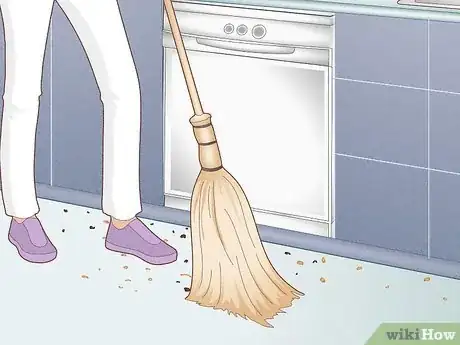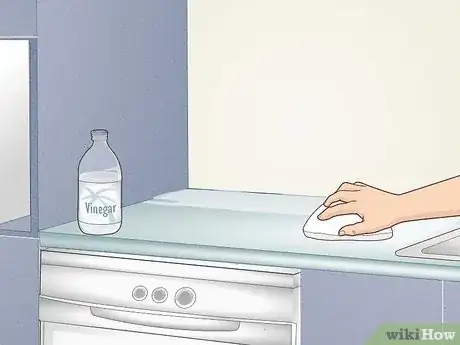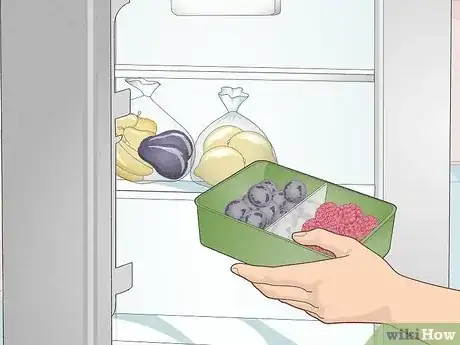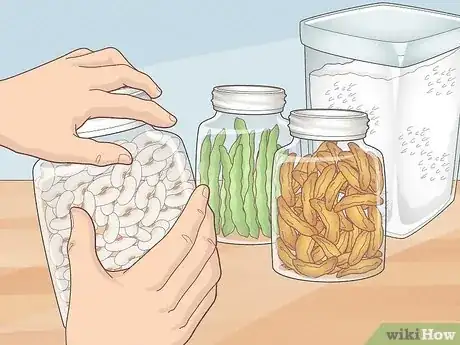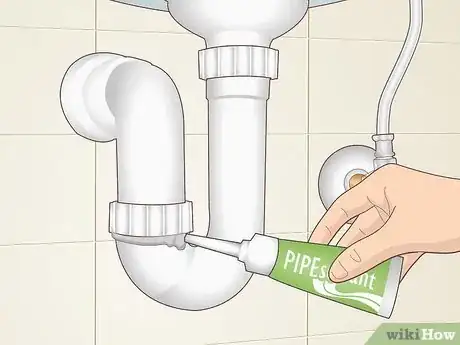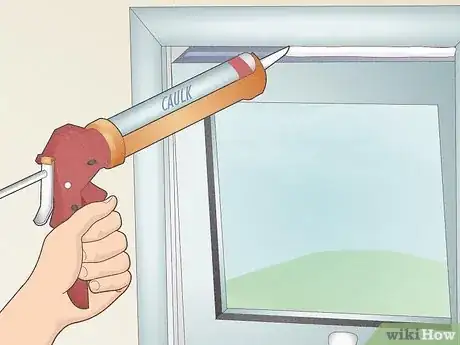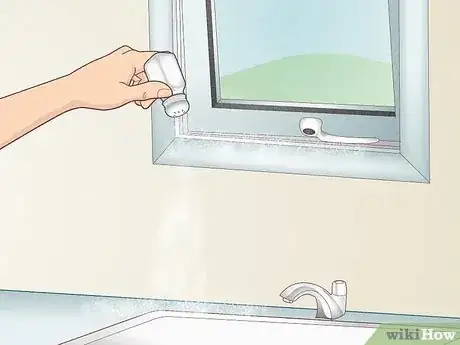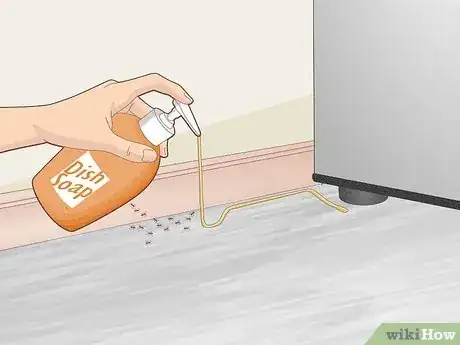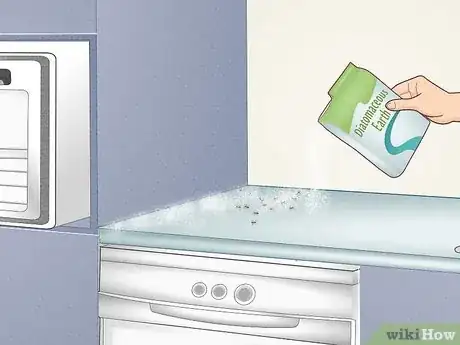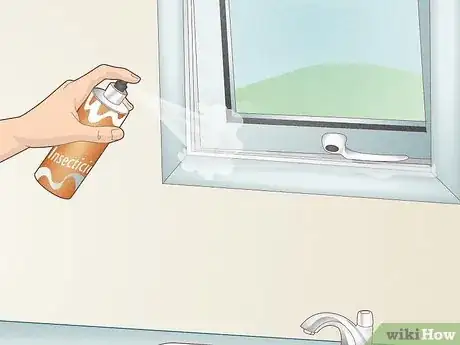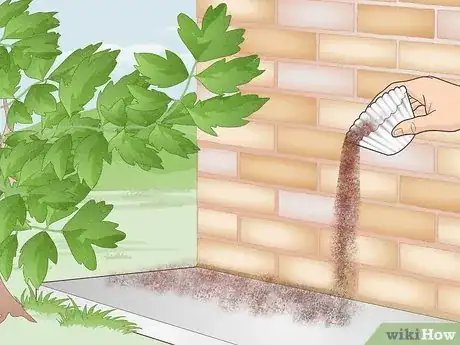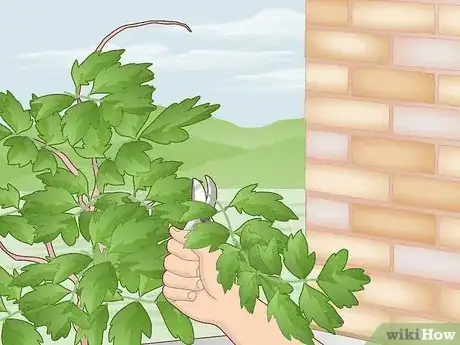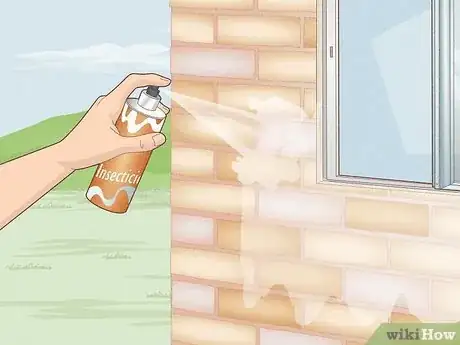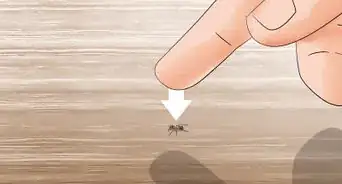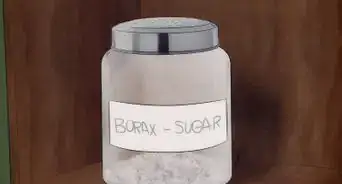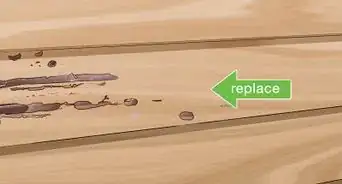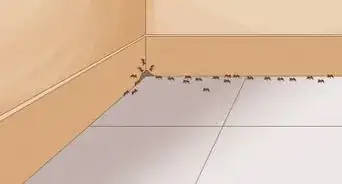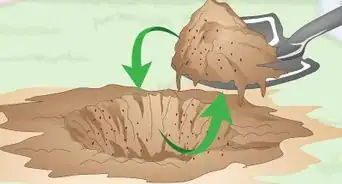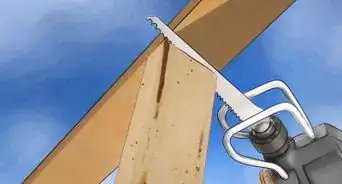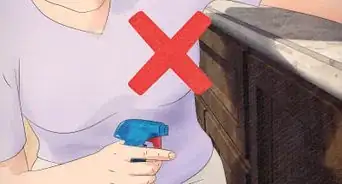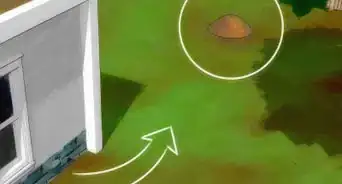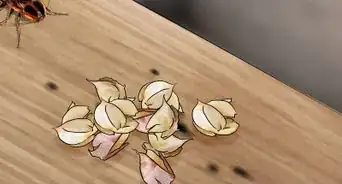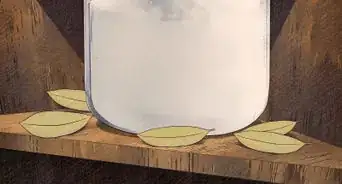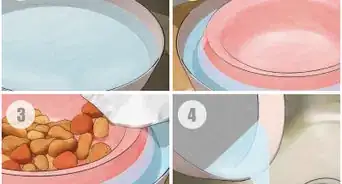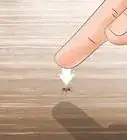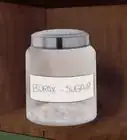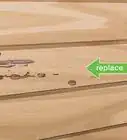This article was co-authored by Chris Parker. Chris Parker is the Founder of Parker Eco Pest Control, a sustainable pest control service in Seattle, Washington. With over seven years of experience, Chris specializes in Integrated Pest Management and doesn’t use any chemicals for pest removal. He offers removal services for ants, rodents, fleas, spiders, wasps, and more. Chris is a certified Commercial Pesticide Applicator in Washington State and received his bachelor’s from the University of Washington.
There are 8 references cited in this article, which can be found at the bottom of the page.
This article has been viewed 44,692 times.
Ant problems can be a pain. Whether you've experienced them first-hand or not, the biggest thing to remember is that ants are attracted to sugar and grease. This makes kitchens a prime location for an ant infestation. The most effective way to ward off an invasion in your kitchen is to keep it clean at all times and cover up any entry points, even if you've never seen an ant around. Not only does this keep you safe from bacteria and diseases, but it will also keep ants from becoming interested in your kitchen.
Steps
Cleaning and Repairing Your Kitchen
-
1Keep your kitchen free of garbage, spills, and food crumbs. Before doing any rigorous cleaning, take care to sweep up crumbs of food, take out the trash daily, and wipe up any spills with a microfiber cloth. You should also be sure to clean your dirty dishes as soon as possible, as they are a prime food source for ants.[1] [2]
- If you have pets, keep their bowls empty and clean when they're not eating.
-
2Clean your kitchen surfaces with vinegar and water. Start by creating a 1:1 solution of white distilled vinegar and water in a bowl. Now, dip a clean rag into it, squeeze it out, and wipe down the surfaces of your kitchen. Not only do ants hate the smell of vinegar, but it's also a great substitute for standard detergents that contain the environmentally-damaging phosphorus.[3]
- Focus on areas that get the dirtiest or are most prone to ants.
Advertisement -
3Store ripe fruits in the refrigerator. Ants are attracted to sugar and fruits are a prime source. Although ripe fruits can look pretty in your kitchen, it's best to keep them in the fridge to ensure that they don't attract ants.[4]
- Oranges and lemons can be kept out as they are ant deterrents.
-
4
-
5Remove ant trails with vinegar and water. Watch your kitchen ants carefully and determine the trails that they commonly follow—these are likely the scented trails that lead the colony in and out of the home. Now, add 1 part vinegar and 3 parts water into a spray bottle and apply it to every trail you notice.[7]
- Keep in mind that mopping and sweeping isn't enough to kill the scent of ant trails.
-
6Fix any leaking pipes and leaky faucets. Water sources can attract ants, which is why it's important to keep your plumbing in check. Make it a habit to check your pipes every now and then, especially in areas you might not notice such as under the sink. Cover small leaks with rubber and remove larger leaks by replacing the affected portion of piping. To fix a leaky faucet, replace the seat washer, which is held in place on the stem—the long part underneath the faucet handle—with an upside down brass screw.[8]
- If the handle of the faucet is leaky and not the body, replace the O-shaped rings instead of the seat washer.
- Always be sure that the pipes are completely dried after repairing them.
-
7Seal gaps and cracks with a caulking gun. Apply caulk to any gaps around doors, baseboards, windows, and other openings that ants might find their way into your kitchen through. Even if they look small, don't take the chance! Start by washing the cracks with hot water, disinfectant, and rubbing alcohol. Afterward, load your caulking gun, cut the front nozzle at a 45-degree angle, pull the trigger, and draw the gun nozzle over the crack.[9]
- Keep the gun nozzle facing downward at a 45-degree angle to the crack.
- Always press the trigger steadily and firmly and move slowly across the crack.
- If your doors aren't fitting tight enough, add stripping to the bottom.
Deterring Ants from Your Kitchen
-
1Spread salt near your kitchen's doors, windows, and walls to dehydrate ants. Salt dries ants out and although it won't kill them, it does make them avoid it. Take note of areas where your ants travel, enter, and exit and line them with salt.
-
2Apply a line of dish soap around ant gathering areas to stop ant entry. Windows, doors, and baseboards are common areas. Squeeze out a thin line or soap along these regions to deter ants from using these entrances.[10]
- As an alternative, mix the soap with water in a 1:1 solution and spray the areas down.
-
3Spray lemon juice around your kitchen's entry points to kill and deter ants. Lemon juice helps kill and deter ants with its acidic oil called d-limonene. Start by filling a spray bottle with ½ lemon juice and ½ purified water. Afterward, add 15 drops of an essential oil—such as tea tree, peppermint, lemon, or orange—per 1⁄4 cup (59 mL) of the solution and spray it around all ant entry points.[11]
- Use just 3 to 4 drops of clove oil as it's very strong.
- Keep in mind that lemon juice could peel paint or damage your countertops.[12]
-
4Sprinkle diatomaceous earth around your kitchen kill ants. Purchase a bag of food-grade diatomaceous earth—it's a really fine powder that kills invertebrates, but it's not dangerous to humans or pets at all. Sprinkle a little of the powder wherever you've seen ants. If they walk across it, it will get into their exoskeleton, eventually killing them.[13]
- When you don't see ants anymore, sweep or vacuum up any remaining powder.
- Place the DE anywhere ants enter and exit your kitchen.
-
5Spray a 4 inch (10 cm) line of insecticide along ant entry points to kill them. Purchase an insecticide that contains permethrin, bifenthrin, or deltamethrin and spray bands along entry points in your kitchen. Take care to apply just enough to wet the surface.[14]
- Remember that this only keeps ants out (it doesn’t kill ants inside your kitchen) and can hinder the effectiveness of ant baits.
- Remove food and dishes from your kitchen prior to applying insecticide.
- Carefully follow the label instructions before you use an insecticides in your home—most of them will tell you not to spray them on food prep surfaces like countertops, for instance.[15]
Stopping Ants from Getting Inside
-
1Sprinkle used coffee grounds around the outside of your kitchen. Ants don't like the smell of coffee. Head to the outside of your home and find the wall directly behind your kitchen. Now, sprinkle your coffee grounds in a line parallel to the wall so that they avoid entering your home from this area.[16]
- If you know the exact spot your ants are entering your kitchen from, sprinkle a generous amount of coffee grounds on this location.
-
2Trim shrubs, trees, and bushes that brush against your home. This will prevent leafcutter ants from using them to enter your home. Always keep a 3 to 6 inches (7.6 to 15.2 cm) of space between the soil around your home's foundation and the bottom row of siding on the outer wall of your kitchen. Trim younger shrubs by removing long, unbranched stems from right above a bud. For older shrubs that have tangles of stems, remove as many old stems as possible while keeping new, growing stems.[17]
- If you find any neglected shrubs, using a pruning saw and loppers to cut every stem to 1 inch (2.5 cm) or less from the ground during the winter when they're dormant.
- Never stack firewood next to your home or it will attract ants to your plants and home.
-
3Apply a 12 inch (30 cm) wide band of insecticide outside of your kitchen. Head outside your home and find the outer wall just outside your kitchen, Now, spray insecticide along this region to prevent ants from entering.[18]
- Select outdoor insecticides labeled for "barrier treatment" for the best results.
Expert Q&A
-
QuestionWill cinnamon get rid of ants?
 Chris ParkerChris Parker is the Founder of Parker Eco Pest Control, a sustainable pest control service in Seattle, Washington. With over seven years of experience, Chris specializes in Integrated Pest Management and doesn’t use any chemicals for pest removal. He offers removal services for ants, rodents, fleas, spiders, wasps, and more. Chris is a certified Commercial Pesticide Applicator in Washington State and received his bachelor’s from the University of Washington.
Chris ParkerChris Parker is the Founder of Parker Eco Pest Control, a sustainable pest control service in Seattle, Washington. With over seven years of experience, Chris specializes in Integrated Pest Management and doesn’t use any chemicals for pest removal. He offers removal services for ants, rodents, fleas, spiders, wasps, and more. Chris is a certified Commercial Pesticide Applicator in Washington State and received his bachelor’s from the University of Washington.
Founder, Parker Eco Pest Control It ultimately depends on the species of ant. And if it's a large infestation, cinnamon probably isn't going to do anything. If the ants are just scouting the area, you may have a chance to put that cinnamon out and maybe they'll be deterred. But ultimately, if it's an everyday issue, cinnamon isn't gonna do a whole lot.
It ultimately depends on the species of ant. And if it's a large infestation, cinnamon probably isn't going to do anything. If the ants are just scouting the area, you may have a chance to put that cinnamon out and maybe they'll be deterred. But ultimately, if it's an everyday issue, cinnamon isn't gonna do a whole lot. -
QuestionI have very tiny ants around my sink and on top of my stove near the burners. I rarely cook and have vacuumed and washed with Clorox wipes. Any advice?
 TayaberrieCommunity AnswerBoil hot water and pour it over the source and the ants. If that doesn’t work mix vinegar with boiling water and repeat.
TayaberrieCommunity AnswerBoil hot water and pour it over the source and the ants. If that doesn’t work mix vinegar with boiling water and repeat. -
QuestionDo ants carry diseases?
 Community AnswerNo, but they can carry harmless bacteria.
Community AnswerNo, but they can carry harmless bacteria.
Warnings
- Always read the label on any cleaners or traps that you use around your food to make sure that they are safe. Natural cleaners are a good choice.⧼thumbs_response⧽
- Always keep traps and cleaners away from children and pets, even if they are natural products.⧼thumbs_response⧽
- Keep the number of your local Poison Control Centre on hand in case of any accidents.⧼thumbs_response⧽
- Avoid using any cleaners—even natural ones—while you are preparing food. If you must use one, spray it close to the mess in order to avoid it drifting over to your food. Alternatively, you can use a cleaning wipe to prevent drifting spray.⧼thumbs_response⧽
Things You'll Need
- Vinegar
- Insecticide
- Cloths or paper towels.
- Airtight containers
- Black pepper
- Caulking gun
- Wrench
- Shovel
- Pruners
- Pruning saw
References
- ↑ https://www.familyhandyman.com/pest-control/how-to-get-rid-of-ants/view-all/
- ↑ Chris Parker. Pest Control Specialist. Expert Interview. 21 April 2021.
- ↑ https://www.care2.com/causes/10-ways-to-keep-those-pesky-ants-out-of-your-kitchen.html
- ↑ https://www.today.com/home/how-get-rid-ants-your-house-t131057
- ↑ Chris Parker. Pest Control Specialist. Expert Interview. 21 April 2021.
- ↑ https://www.today.com/home/how-get-rid-ants-your-house-t131057
- ↑ https://www.familyhandyman.com/pest-control/how-to-get-rid-of-ants/view-all/
- ↑ https://www.popularmechanics.com/home/interior-projects/how-to/a3095/5-steps-to-fix-a-leaky-faucet-15470175/
- ↑ https://www.bobvila.com/articles/how-to-use-a-caulk-gun/
- ↑ https://www.care2.com/causes/10-ways-to-keep-those-pesky-ants-out-of-your-kitchen.html
- ↑ https://www.mommypotamus.com/7-ways-get-rid-ants-naturally/
- ↑ Chris Parker. Pest Control Specialist. Expert Interview. 21 April 2021.
- ↑ Chris Parker. Pest Control Specialist. Expert Interview. 21 April 2021.
- ↑ https://www.familyhandyman.com/pest-control/how-to-get-rid-of-ants/view-all/
- ↑ Chris Parker. Pest Control Specialist. Expert Interview. 21 April 2021.
- ↑ https://www.care2.com/causes/10-ways-to-keep-those-pesky-ants-out-of-your-kitchen.html
- ↑ https://www.thisoldhouse.com/how-to/how-to-prune-small-trees-and-shrubs
- ↑ https://www.familyhandyman.com/pest-control/how-to-get-rid-of-ants/view-all/
